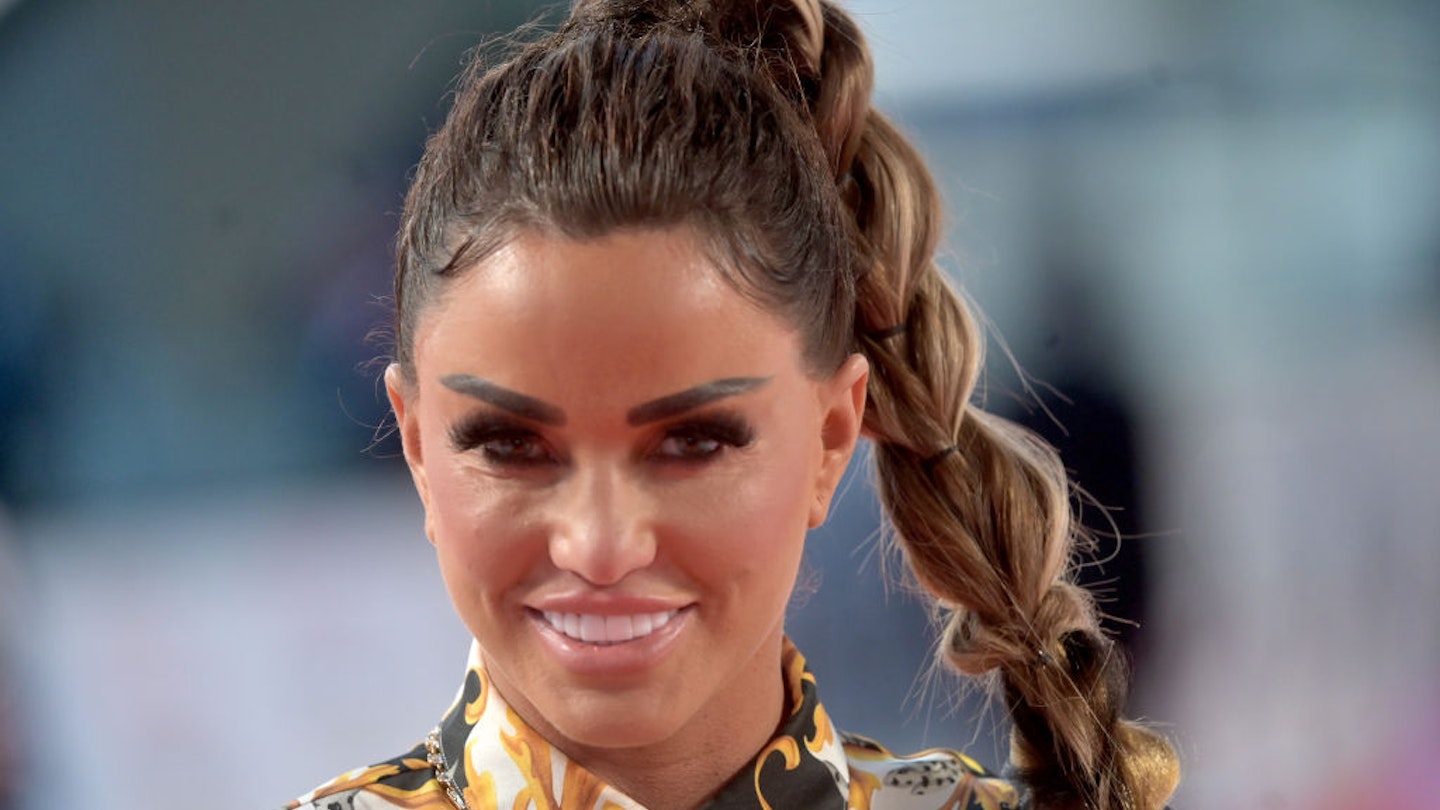Katie Price’s family have expressed concern about her mental health,after it was reportedthat the former glamour model had rolled her car in an alleged drink driving incident following an “all-night binge”.
Thankfully, Price is not believed to have been seriously injured but yesterday her family posted a statement on her Instagram grid asking for time, space and understanding for the 43-year-old, who they say will be getting “the help she needs” following the accident.
The statement points out that “mental illness is not a personal failure” and asks that “it is recognised that Katie is unwell”. Price’s family also acknowledge that the mother-of-five lives life in the public eye and is seen as “fair game to some” but plead with her followers for understanding, while “not asking for sympathy”.
Sadly and predictably, however, their heartfelt statement has been no deterrent to trolls, with one particularly cruel Twitter user claiming “you can't get out of everything by playing the mental health card”.
To not take Katie’s family at their word is vicious and irresponsible. It’s no news flash that people in the public eye are not infallible, that they struggle - like all of us - with problems with their mental health - and that they read unkind online comments and are affected by them. And how could they not be?
In 2018, when Ant McPartlin’s prescription painkiller addiction culminated in the presenter being involved in a car crash and receiving a drink driving conviction, the 45-year-old’s illness was rightly met with an outpouring of public support, which he said left him “overwhelmed”.
McPartlin took a break from his presenting duties while he recovered, and later returned with ITV’s full support.
Clearly, the British public are capable of recognising that, as Price’s family pointed out, mental illness is not a personal failing. So why this blind spot when it comes to her?
The answer is likely twofold: Price is someone who is regularly seen to be courting public attention and, crucially, she’s a woman. Like Kerry Katona, Lindsay Lohan, Amanda Bynes and Amy Winehouse before her, Price has been characterised as a hysterical woman whose public meltdown is there to be exploited for our entertainment and schadenfreude, and who, in the public’s eyes, brought this on themselves.
More recently, Caroline Flack was a woman in crisis who needed support. The presenter’s friends and family have since spoken about how affected the 40-year-old was by online comments, which she would “obsessively” trawl through.
Following her death, social media users publicly decried the cruel remarks that had gone before, and the #BeKind movement was born. But recognising one woman’s humanity (after she vanished from our screens and was no longer able to make public mistakes) will not solve the ingrained attitudes towards women that underpin online vitriol.
